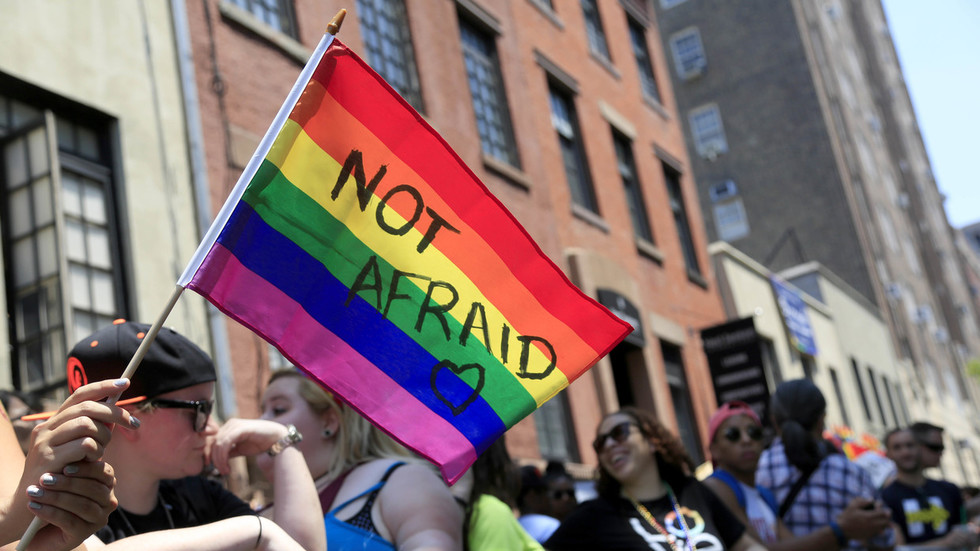
A record number of high school students now identify as gay, lesbian, or something other than straight

FILE PHOTO: A woman holds a rainbow flag during the NYC Pride Parade in New York City, June 26, 2016 © AP / Seth Wenig
A new report by the Centers for Disease Control and Prevention (CDC) has found that a quarter of US high school students identify as homosexual, bisexual, or ‘questioning’, a figure that has more than doubled since 2015.
Based on data collected in 2021 and released on Thursday, the CDC’s report found that 72.4% of high schoolers identify as heterosexual, down from almost 90% in 2015; 3.2% identify as gay or lesbian, 12% identify as bisexual, and 9% as ‘other’ or ‘questioning’.
Girls were more likely than boys to place themselves in all three categories, with five times as many female students considering themselves bisexual (20% vs. 4%), and four times as many (13.7% vs. 3.7%) listing themselves in the ‘other’ category.
The CDC noted that the increase “might be a result of changes in question wording,” explaining that answers like “I am not sure about my sexual identity” or “I describe my sexual identity in some other way” were not included in its previous questionnaires.

Read more
Just over 7% of the US adult population identifies as LGBTQ, according to a Gallup poll published in February. This figure has risen with each passing generation, with 20% of Generation Z (those born between 1997 and 2004) identifying as LGBTQ, compared to 11.2% of Millennials, 3.3% of Generation X, 2.7% of Baby Boomers, and 1.7% of those born before the end of World War II.
The number of transgender Americans, which the CDC survey did not measure, has exploded. Fewer than 0.05% of the Silent Generation (born between 1928 and 1945) identified as transgender in the Gallup survey, compared to 1.9% of Generation Z, an almost forty-fold increase.
Some commentators argue that increased acceptance of alternative sexualities has made each successive generation more comfortable with coming out as LGBTQ. Others claim that “social contagion” – in which young people embrace LGBTQ identities in order to fit in with their peers – is responsible. A study published earlier this month found that adolescent girls with transgender friends were more likely to come out as transgender themselves. The study also linked heavy social media use to transgender identification.
Although more and more high school students are embracing alternative sexualities, fewer and fewer are sexually active. According to CDC data, the number of students who have ever had sex has fallen from 47% in 2011 to 30% in 2021, while the number who said they were currently sexually active fell from 34% to 21% in that same period.




